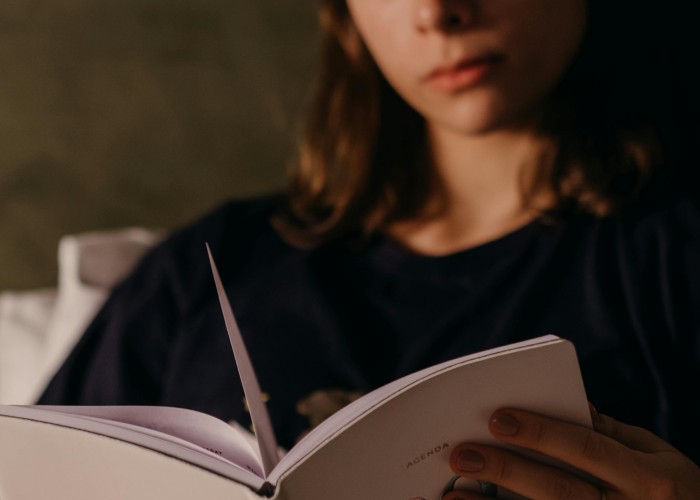Visit Our In-Demand General Blog
Visit Our In-Demand Tour & Travel Blog
Let’s continue to the blog..
Sleep is one of the most important parts of life, yet it is something many people struggle with. After a long day of work, stress, and responsibilities, it is not always easy to switch off your mind and drift into restful sleep. If you often find yourself tossing and turning at night, you are not alone. The good news is that your evening routine plays a major role in how easily you fall asleep and how refreshed you feel the next morning. Evening Routines That Help You Sleep Better.
In this guide, we’ll explore simple yet effective evening routines that help you sleep better. These habits are easy to adopt and can make a big difference in your daily life.
Why Evening Routines Matter
The human body works on what is called a circadian rhythm—your internal clock that regulates when you feel awake and when you feel sleepy. By following a calming evening routine, you signal to your body that it is time to wind down. This makes it easier to fall asleep naturally without forcing yourself to rest.
A structured evening routine can:
- Reduce stress and mental clutter.
- Prepare your body for deep rest.
- Improve sleep quality and duration.
- Help you wake up feeling energized instead of tired.
Think of your evening routine as a bridge between your busy day and peaceful sleep.
1. Set a Consistent Sleep Schedule
Going to bed at the same time every night helps regulate your body clock. Even on weekends, try not to stay up too late. Over time, your brain will naturally recognize when it is time to sleep, making the process smoother.
- Choose a bedtime that gives you at least 7 to 8 hours of rest.
- Avoid long daytime naps that interfere with nighttime sleep.
- Be patient; consistency is key.
2. Create a Relaxing Sleep Environment
Your bedroom should feel like a sleep sanctuary. The right environment makes it easier to fall asleep and stay asleep.
- Keep your room cool, dark, and quiet.
- Invest in comfortable bedding and pillows.
- Limit clutter to create a calming space.
- If noise is an issue, try white noise or calming sounds.
The atmosphere you sleep in directly affects the quality of your rest. Evening Routines That Help You Sleep Better.
3. Limit Screen Time Before Bed
Phones, tablets, and laptops emit blue light, which can interfere with melatonin production—the hormone that signals sleep.
- Turn off screens at least 30 to 60 minutes before bed.
- If you need entertainment, read a book or listen to soft music.
- Consider using blue-light filters if you must use devices at night.
By disconnecting from screens, you allow your mind to relax naturally.
4. Practice Relaxation Techniques
Stress and overthinking are common reasons people can’t sleep. Relaxation practices can calm your mind and prepare your body for rest.
- Try deep breathing exercises to slow your heart rate.
- Practice gentle stretches or yoga to release tension.
- Journaling before bed can help clear anxious thoughts.
- Meditation or mindfulness can bring peace to your evening.
These small steps help reduce the mental chatter that often keeps you awake.
5. Avoid Heavy Meals and Caffeine at Night
What you eat and drink in the evening impacts how well you sleep.
- Avoid caffeine, alcohol, and nicotine in the hours leading to bedtime.
- Eat lighter dinners that are easy to digest.
- If you get hungry before bed, try a light snack like fruit, yogurt, or herbal tea.
Your digestive system works best when not overloaded late at night.
6. Establish a “Wind-Down” Routine
Think of your wind-down time as a gentle signal to your body that the day is coming to an end. This routine should be calming and enjoyable.
Some ideas include:
- Taking a warm shower or bath.
- Drinking caffeine-free herbal tea.
- Listening to soothing music.
- Reading a book in soft light.
The key is to choose activities that relax you, not ones that stimulate your mind.
7. Write a To-Do List for Tomorrow
One major reason people struggle to sleep is overthinking about the next day. Writing down your tasks before bed helps you mentally let go.
- List important tasks for tomorrow.
- Note any reminders or deadlines.
- Keep it short and simple.
This clears your mind, reduces stress, and helps you feel prepared.
8. Practice Gratitude Before Bed
Ending the day with gratitude can improve your mindset and reduce nighttime stress.
- Write down three things you’re grateful for.
- Reflect on small positive moments from the day.
- Focus on what went right instead of what went wrong.
This simple habit shifts your thoughts from stress to peace, making it easier to relax into sleep.
9. Limit Stimulants Like News or Intense Conversations
Watching the news, engaging in arguments, or consuming stressful information late at night can make it harder to sleep.
- Save serious conversations for earlier in the day.
- Avoid dramatic TV shows or stimulating movies right before bed.
- Focus on light, relaxing content during your wind-down routine.
Your mind needs calm, not adrenaline, before rest.
10. Keep Evenings Gentle and Slow
Your evening routine should gradually slow your energy down. Instead of rushing, treat evenings as your body’s time to reset.
- Dim the lights an hour before bed.
- Walk slowly, breathe deeply, and move mindfully.
- Avoid multitasking; keep things simple.
Slowing down physically signals to your body that it is time for rest.
Long-Term Benefits of a Healthy Evening Routine
Adopting healthy evening habits does more than improve sleep—it impacts your overall well-being.
- Boosts mood and reduces anxiety.
- Improves focus and productivity the next day.
- Strengthens your immune system.
- Supports long-term mental health and emotional balance.
Better evenings lead to better mornings, and better mornings create better days.
FAQs on Evening Routines for Better Sleep
1. How long should an evening routine last?
An evening routine does not need to be long. Even 30 minutes of calm, intentional activities can prepare your body for rest. Evening Routines That Help You Sleep Better.
2. What is the best time to go to bed?
The best bedtime varies for each person, but aim for 10 PM to midnight to align with your natural circadian rhythm.
3. Can exercising in the evening affect sleep?
Intense workouts close to bedtime may energize you too much. Light stretching or yoga, however, can help you relax.
4. How do I stick to an evening routine?
Start small with one or two habits, then gradually build more into your routine. Consistency matters more than perfection.
5. Do I need to avoid naps if I want better sleep at night?
Short naps (20–30 minutes) earlier in the day are fine. Long or late naps may interfere with nighttime rest.
Final Thoughts
Sleep is not just about closing your eyes—it is about preparing your mind and body for deep rest. By creating an evening routine filled with calm and mindful practices, you give yourself the gift of quality sleep. Over time, these habits become natural, and you may notice not only better rest but also improved energy, mood, and focus throughout the day.






Leave a Reply